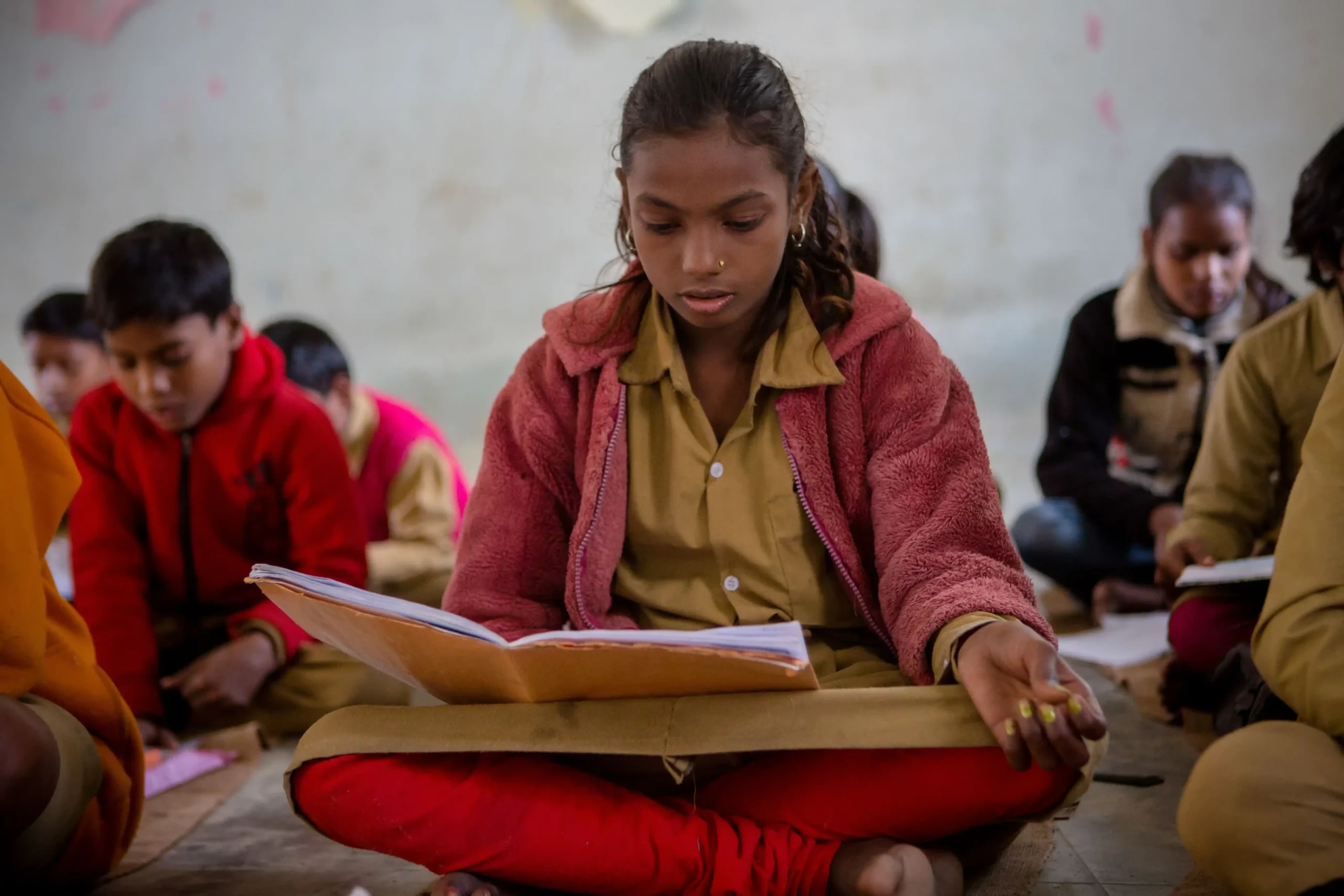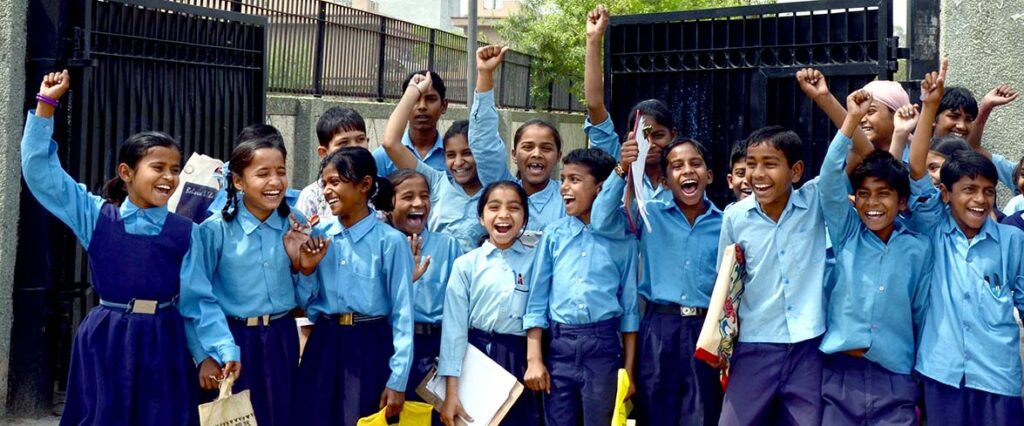
International Day of Women and Girls in Science: Celebrating the Girls in Science
Every year, the International Day of Women and girls in science brings the world together to celebrate curiosity, creativity, and the courage to expl....
Read More
National Education Day is an annual observance in India, commemorating the birth anniversary of Maulana Abul Kalam Azad, the first Minister of Education in independent India. Declared by the Ministry of Education in 2008, this day underscores the importance of education as a pillar for national development, societal progress, and individual empowerment. National Education Day in India serves as a tribute to Azad's vision of creating an inclusive, progressive, and well-structured education system that reaches every corner of the country.
Education is more than just acquiring knowledge; it is a means to foster critical thinking, empathy, and social responsibility. National Education Day reminds us of the enduring impact of Maulana Abul Kalam Azad's efforts and the continued need to strengthen educational opportunities for every child, particularly the most vulnerable.
National Education Day is celebrated to honour the legacy of Maulana Abul Kalam Azad and his tireless work in shaping India's education system. Azad firmly believed that education was the foundation of progress and that access to learning should be universal. He advocated for policies that promoted literacy, equality in educational opportunities, and social empowerment through knowledge.
Celebrating this day highlights education's critical role in achieving national goals, including economic growth, social justice, and sustainable development. It also encourages continuous learning, reminding citizens that education is not limited to formal schooling but extends to lifelong learning, skill development, and personal growth.
By reflecting on Azad’s contributions, the day also reinforces the need to address disparities in education, ensuring that every child, irrespective of gender, socio-economic status, or geographic location, has access to quality learning opportunities.
Also Read: Difference Between Education and Literacy
National Education Day is celebrated on 11th November every year. Educational institutions, from schools to universities, organise various events to mark this day. These include seminars, workshops, essay competitions, and elocution contests that engage students and teachers in discussions about the importance of literacy and education.
In addition to academic activities, public awareness campaigns and rallies are conducted to highlight the importance of equal access to education and the broader societal benefits of a well-educated population. Observing National Education Day in India in such a structured manner fosters a collective commitment to strengthening the education system and promoting child welfare.
Also Read: Free Education
Education is a fundamental tool for child welfare. National Education Day in India serves as an opportunity to assess the progress of educational policies and interventions aimed at improving children’s lives. Policies such as the Right to Education Act, mid-day meal schemes, and scholarship programmes have been pivotal in shaping children’s access to learning.
Over the decades, India has implemented numerous initiatives to expand educational access and quality. The Right to Education (RTE) Act of 2009 marked a significant milestone, ensuring free and compulsory education for children aged 6-14. Programmes like Sarva Shiksha Abhiyan and Rashtriya Madhyamik Shiksha Abhiyan have further strengthened the reach and quality of schooling, focusing on enrolment, retention, and learning outcomes.
National Education Day in India underscores that education is a fundamental child right. Ensuring access to learning, promoting equity in education for marginalized groups, and improving learning outcomes are critical for child welfare. Every child, regardless of their socio-economic background or physical abilities, deserves the opportunity to thrive academically and socially.
Also Read: Conducive Environment
Comprehensive education goes beyond literacy and numeracy. It equips children with the knowledge, skills, and confidence needed to navigate life successfully, laying the foundation for a healthy, productive future.
The early years of a child’s life are critical for cognitive and emotional development. Foundational literacy and numeracy form the base for all future learning. National Education Day reminds us that ensuring quality early education is essential for improving school readiness and long-term academic success.
Education must be inclusive. Girls, children from marginalized communities, and children with disabilities often face systemic barriers. Promoting inclusion ensures that these children have equal opportunities to learn, grow, and participate fully in society, reflecting the true spirit of Maulana Abul Kalam Azad’s vision.
Comprehensive education also includes life skills, safety awareness, and digital literacy. These elements prepare children to face real-world challenges, protect themselves, and make informed decisions. A holistic approach ensures that education contributes to overall child welfare, not just academic achievement.
Despite progress, challenges remain. High dropout rates, teacher shortages, inadequate infrastructure, and socio-cultural barriers prevent many children from accessing quality education. Additionally, the digital divide has become more pronounced, limiting opportunities for children in remote or underprivileged areas. Financial constraints also affect families’ ability to support sustained learning.
National Education Day offers an opportunity to reflect on solutions and take actionable steps. These include:
By addressing these challenges, India can move closer to the vision of an equitable and effective education system that benefits all children.
Also Read: Emotional Development
CRY India works tirelessly to ensure that children have access to quality, inclusive, and safe education. Their initiatives focus on improving school infrastructure, supporting teacher training, and creating awareness about the importance of foundational learning and retention. In 2024–25 alone, 2,29,045 children in CRY project areas were enrolled in school, including 64,224 who benefitted from digital learning through CRY’s Support Centres across India.
Individuals and organisations can contribute by donation to CRY India, volunteering in educational programmes, or partnering on initiatives that enhance access to learning. Supporting CRY India helps bring comprehensive education to children who need it most, aligning with the broader goals of National Education Day.
Support child education through CRY India and help children stay in school, learn well, and dream big.
It highlights the importance of education as a right and a foundation for child development, ensuring access and equity for every child.
By addressing literacy, numeracy, life skills, and inclusion, it equips children to succeed academically, socially, and emotionally.
Challenges include dropouts, inadequate infrastructure, teacher shortages, socio-cultural barriers, and limited access to technology.
CRY India implements programmes focused on teacher training, infrastructure development, community engagement, and inclusive education to ensure children remain in school and achieve foundational learning milestones.
Also Read: Difference Between Education and Literacy